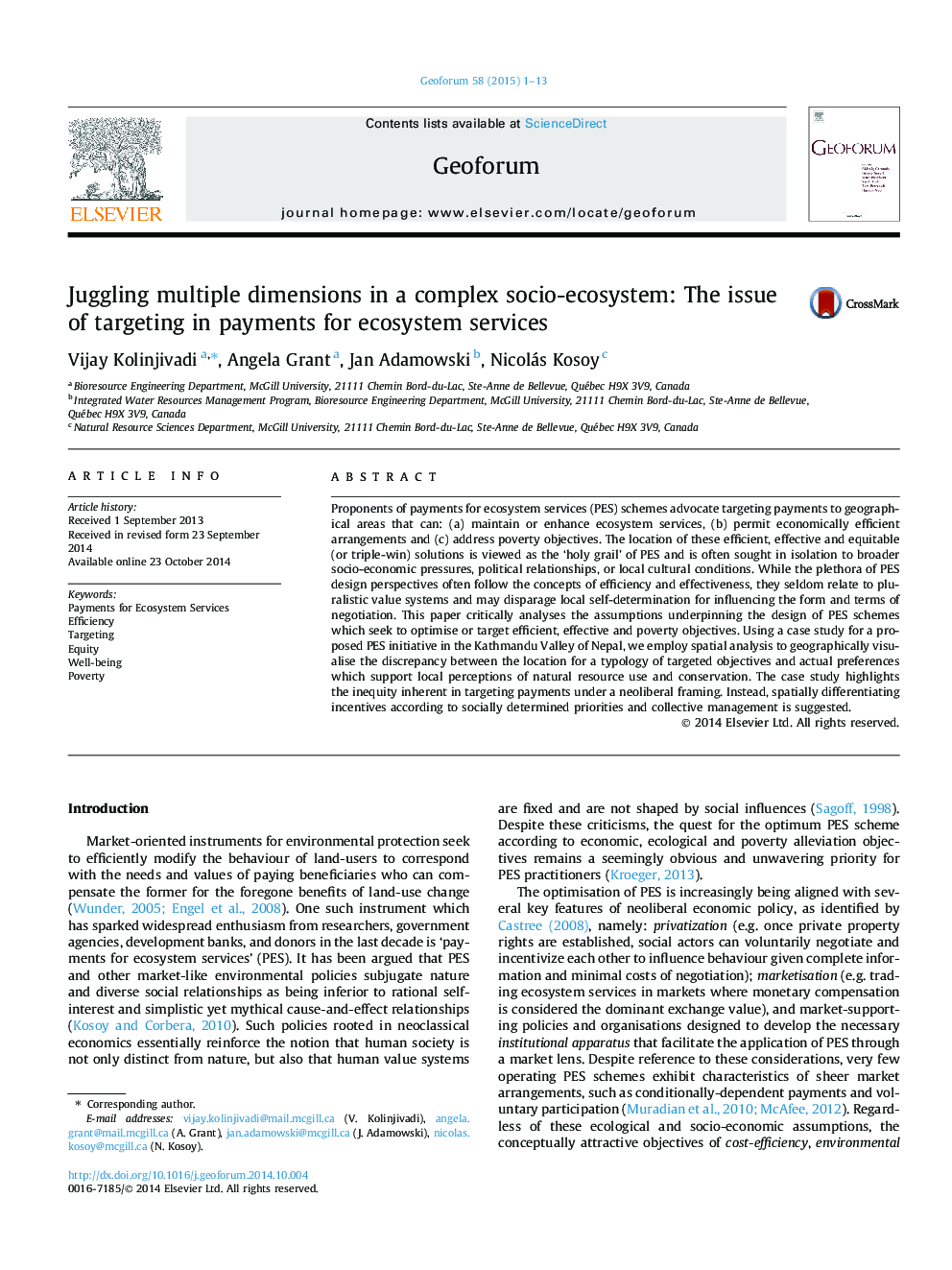| کد مقاله | کد نشریه | سال انتشار | مقاله انگلیسی | نسخه تمام متن |
|---|---|---|---|---|
| 5073846 | 1477131 | 2015 | 13 صفحه PDF | دانلود رایگان |
- 'Holy Grail' PES designs simultaneously optimizing diverse objectives are rare.
- Externally targeted goals are unlikely to reflect social or political conditions.
- A proposed PES scheme in Nepal is examined for trade-offs between targeted objectives.
- PES must be seen as an in-situ social construction driving the negotiation process.
- Trade-offs between multiple PES objectives can then be viewed as socially legitimate.
Proponents of payments for ecosystem services (PES) schemes advocate targeting payments to geographical areas that can: (a) maintain or enhance ecosystem services, (b) permit economically efficient arrangements and (c) address poverty objectives. The location of these efficient, effective and equitable (or triple-win) solutions is viewed as the 'holy grail' of PES and is often sought in isolation to broader socio-economic pressures, political relationships, or local cultural conditions. While the plethora of PES design perspectives often follow the concepts of efficiency and effectiveness, they seldom relate to pluralistic value systems and may disparage local self-determination for influencing the form and terms of negotiation. This paper critically analyses the assumptions underpinning the design of PES schemes which seek to optimise or target efficient, effective and poverty objectives. Using a case study for a proposed PES initiative in the Kathmandu Valley of Nepal, we employ spatial analysis to geographically visualise the discrepancy between the location for a typology of targeted objectives and actual preferences which support local perceptions of natural resource use and conservation. The case study highlights the inequity inherent in targeting payments under a neoliberal framing. Instead, spatially differentiating incentives according to socially determined priorities and collective management is suggested.
Journal: Geoforum - Volume 58, January 2015, Pages 1-13
